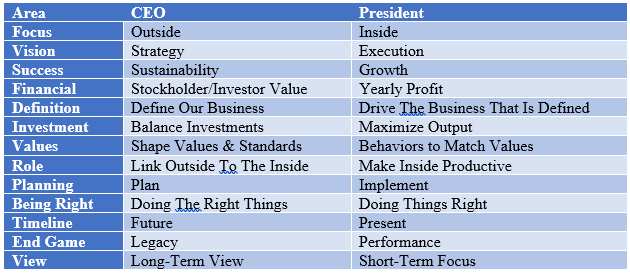I recently read something that suggested that the business world is made up of hunters and farmers. The concept intrigued me enough to do some additional research. When I dug deeper, I discovered how dyslexia and Attention-Deficit Hyperactivity Disorder (ADHD), often considered human flaws in today’s society, can actually create more effective small business founders.
Since 2004, I have mentored thousands of clients. I could tell that some would be successful, and others, I knew in my heart, would struggle. It was a gut feeling on my part since I could not identify precisely what allowed me to foresee a successful business owner from what I assumed would be a less successful one. While I was not right 100% of the time, I tended to be right more than wrong. But what drove that gut feeling? Applying the metaphor of hunters in a world designed for farmers removed much of that fog of not being able to quantify my gut feeling.
I’m often asked to identify the one thing I could attribute to my success as a business owner. While there are undoubtedly many, when pressed to come up with only one, I have always credited my business success to being a flaming dyslexic. It was through dyslexia that I learned to adapt to a world that was not designed for me and that I gained the spatial awareness necessary to view problems from different perspectives.
While statistically, dyslexia is only present in about 10% of the US population, over 35% of entrepreneurs say they are dyslexic. Is it just a coincidence, or is there something more at play there?
While I believed that dyslexia in a founder plays a role in the potential success of a business venture, I knew that it was not the only factor since 2/3 of the founders are not dyslexic. Then I heard about a book by Thom Hartmann. Thom is a radio host who, in a former life, was a psychotherapist and businessman. He wrote several books about attention-deficit hyperactivity disorder (ADHD) and adult attention-deficit disorder (AADD)
Reviewing Thom’s work, I discovered that individuals with ADHD are said to be monotropic, which is the propensity to be hyper-focused. According to Wikipedia, hyperfocus refers to an intense fixation on an interest or activity for an extended period of time. People who experience hyperfocus often become so engrossed, they block out the world around them. While I was never diagnosed with ADHD, being hyper-focused is where I like to live. To this day, I often enter my office in the morning and have to be dragged out at the end of the day by my wife, having forgotten to eat lunch. Moreover, I rarely stay with anything for a long time, and I find so many fascinating things that I need to explore. I can also switch gears by changing my focus from one task to another without missing a beat, all symptoms of ADHD.
When I discovered several studies that connected ADHD with an increased proclivity for entrepreneurship, I was not surprised.
Thom Hartmann, in his book ADHD: A Hunter in a Farmer’s world, proposed what he called the hunter vs. farmer hypothesis. His hunter vs. farmer hypothesis suggests that ADHD is an evolutionary adaptation to the hunting lifestyles of old. The key for me was that ADHD was not a disability but, in fact, a positive trait honed by millions of years of evolution and natural selection.
Until about 12,000 years ago, all tribes were organized around hunters. We had no choice. We had not yet figured out how to farm. Hunters had to go out in the cold and the rain and persevere until they brought food home or the tribe did not survive. The consequences of failure were dire, and people depended upon the hunters to provide them with life-sustaining food and animal skins to survive, much like the modern-day entrepreneur takes enormous financial risks to provide jobs for their employees.
However, today the world has been transformed from a world of hunters to one dominated and optimized for farmers. The epiphany for me is that dyslexia and ADHD are traits that were once rewarded by natural selection, but as the world has changed, they now appear as disabilities, except when it comes to small business success, where they remain an advantage.
While dyslexics and people with ADHD are genetically hardwired as hunters, it causes difficulties for them since they are forced to live and work in a culture in which “farming” — planning, being predictable, organized, and repetitive behaviors — are typical.
The challenges that dyslexics and people with ADHD face make them less adapted to flourish in a world designed for farmers. To overcome these challenges, they are forced to look for alternative solutions better suited for hunters than farmers. It is this acquired ability to think outside the box to overcome the challenges of a world designed for farmers, to which they are not suited, that I believe creates the seeds that lead hunters to choose to follow an entrepreneurial journey. These same hunting attributes that make dyslexics and people with ADHD great hunters make them poor employees, causing many to seek self-employment as an alternative.
It is not hard to imagine that adopting strategies to overcome challenges and being hardwired to be hyper-focused and restless are attributes that can contribute to a startup founder’s success.
When starting a business, hunters focus intensely on a subject, such as employment law or sales taxes, until they gain a basic level of mastery. Most of the time, these deep dives are driven by the necessity to overcome a challenge. Once the subject is understood, the hunter moves on to the next challenge they must overcome. Over time, they tend to become a jack of all trades and masters of none when it comes to business.
Being versed in many aspects of the business gives the hunter founder the big picture necessary to start a business. However, as a business grows, it gets more complicated, specialized, and repetitive. The problem is that while being a hunter provides the entrepreneurial spark to birth a new business, the business needs farmers when it is time to scale. Farmers are required to keep things running in the background, so the hunters can chase the next big thing. Farmers in a business enable the hunters to continue to hunt.
While hunters are great at owning and operating a lifestyle or microenterprise, to experience real growth often requires the business to acquire the skillsets and disciplines associated with the farmer.
Most business books are written for farmers and not hunters. Hunters get frustrated as they try to implement the recommendations and employ the systems necessary to run a company as it grows.
The day-to-day management of a business consists of farming tasks. Manage what you measure, focus on the details, and understand your financial statements are what most business books postulate. However, the skills that allowed the founder to build a business, such as their vision to see into the future, leadership, finding alternative solutions, and possessing the grit to refuse to give up in the face of adversity, are all hunter skills.
What kills many businesses is that the founder, who is a hunter first, is told that they need to adopt more farmer skill sets that are not really exciting to them, or even what they are good at. Hunters, by virtue of their innate skill sets, should focus on what they do best, and that is to hunt and not farm.

While I knew it was an important lesson to share, I now understand why I have always felt the need to educate my clients about the differences between the role of the CEO and the President. Hunters make better CEOs while Farmers make better Presidents. CEOs focus on the outside world, creating strategy, and the future. Presidents, on the other hand, keep their focus on the business, the execution, and the past and present.
As discussed in the post “7 Business Growth Stages – What CEOs Need to Know,” the CEO’s role changes as the business matures and grows. Founders are what I call the Oracle and are the creative geniuses who start innovative new companies and are the true hunters. However, at some point, the business needs a General who is focused on creating repeatable processes and is a better farmer than a hunter to take the business to the next level.
There are three options for the hunter founder when a business really takes off:
- Learn the skills of the farmer
- Hire a farmer as the President to manage all day-to-day stuff
- Sell the company to a farmer
I consider myself to be a much better hunter than a farmer. Many of my friends are hunters and serial entrepreneurs also. Once their business outgrows their hunter skillset, they frequently sell their business and set their sights on the next business venture. They get bored quickly and need new mental challenges to stay happy. I have often said that I’m great at starting a business, but not really at scaling it beyond 30 employees. I also get bored easily, need constant mental stimulation, and hate repetitive tasks.
The concept of hunters vs. farmers helped me make sense of many of my gut feelings I could not explain satisfactorily to others.
My first employee-based business reached a plateau at about 30 people. As a hunter, I was a jack of all trades and acted as the CEO and President. I had to control everything and was not very good at delegating since I always felt I could do a better job running the business and producing the outputs of the company than anyone else. At the time, I did not understand that I could remain a hunter as the CEO and hire a farmer as the President. Seeing no way out, becoming frustrated by our inability to continue to grow and since I could no longer scale myself any further, we decided to sell the business to someone that could take the company to the next level.
We ended up selling the business to a publicly held company run by, you guessed it, farmers. As VP of operations, I was forcibly groomed to be a farmer. While I learned a lot about farming during that period, I was often very frustrated with my employees and was never really happy. Sometime later, I had the opportunity to repurchase my business along with another company they had acquired, and I jumped at the chance to be a hunter again. While I have always said I’m a better CEO than a President, I know now that it is because I’m a hunter first and a farmer second.
In retrospect, I now also understand why I enjoy being a small business mentor so much. It really allows me to explore new business ideas and teach others the nuances of being a hunter.
Are you a hunter or a farmer?












